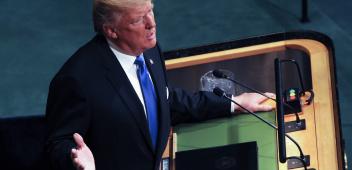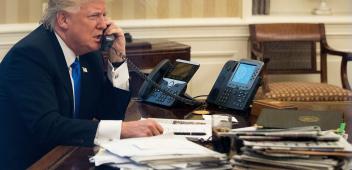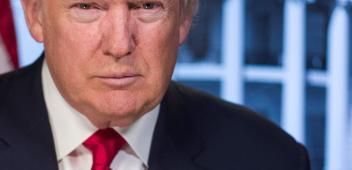Trump is long past laughing off
Originally published in The Australian Financial Review.

Executive Summary
It wasn't Hillary Clinton who gave the most important speech at the Democratic National Convention. It wasn't even the ever-eloquent Barack Obama, or his folksy vice-president Joe Biden, or the guy who hopes to succeed him, Clinton's VP pick Senator Tim Kaine. No, for my money, it was business magnate and politician Michael Bloomberg, who considered running as an independent in this year's presidential race.
Why? Because Bloomberg tacitly acknowledged Donald Trump's strengths by taking him seriously. Trump is an easy figure to mock. But, with the two nominees now locked in and about 100 days until election day, that time has passed. A Trump presidency is no longer a laughing matter.
Bloomberg spoke directly to the people who will decide this election, those who have reservations about Donald Trump but don't like Hillary Clinton much either. If the Democratic Party is to retain the presidency, it needs the votes of those people and it will only get them by changing tack, by moving from ridiculing the Republican nominee to taking him on. Bloomberg showed how.
"The bottom line is: Trump is a risky, reckless and radical choice. And we can't afford to make that choice," he said. "Now I know Hillary Clinton is not flawless, no candidate is. But she is the right choice, and the responsible choice, in this election."
Hillary Clinton is a tough sell. Trump comes out ahead when voters are asked to rank the nominees on honesty and trustworthiness. There are many reasons for this, including the email controversy: Clinton shouldn't have used a private email account for State Department business for many reasons, but one of the most obvious is the presidential nominee she always wanted to become should have done everything by the book.
Now the stubbornly persistent whiff of wrongdoing left by that episode has been compounded by the unedifying clutch of emails from the Democratic National Committee released by WikiLeaks a week ago. Trump's appeal to Russia this week to hack and release Clinton emails was astounding on many levels but for him it was an irresistible opportunity to hit his opponent where she's vulnerable. "Crooked Hillary" resonates.
Of course it's hard to understand why so many want as their President a man who is loose with the truth, wants to discriminate on grounds of religion, and whose promises to lower taxes while reducing government debt don't add up. The rest of the world is aghast at his world view which appears to favour a return to the American isolationism of the 1930s. Yet those promises helped persuade 13.4 million people to vote for Trump in the primaries, more support than any other Republican candidate received in previous election years. Democrats wrote off his acceptance speech at the Republican convention last week as too long, too gloomy and too angry until they saw how he shot up in the polls straight after. People like what he is selling.
Rather than a contest between a reality TV star and a career politician, this election is becoming a contest between Trump's dystopian view and a sunnier outlook, one where the US is, and will remain, the most powerful nation on the planet and where the American dream is alive and well. Such optimism is hard to reconcile with a world where deadly terrorism attacks are no longer exceptional, where people no longer feel safe. Trump has promised to change that. The Dems have to challenge Trump's ability to deliver.
Hillary Clinton's acceptance speech was a great deal longer, and more flowery than Bloomberg's. But she did respond directly to her opponent's long and angry speech.
"So don't let anyone tell you that our country is weak. We're not. Don't let anyone tell you we don't have what it takes. We do," she said.
"And most of all, don't believe anyone who says: 'I alone can fix it."'
The Democratic presidential candidate is going to have keep making that case to win over those who are still deciding which box to tick, or whether to vote at all.
Otherwise there is a real chance Barack Obama's vision of America, the "generous, big-hearted, hopeful country", will go with him when he leaves the White House.
Emma Connors is managing editor of the Lowy Institute for International Policy's online magazine The Interpreter.



